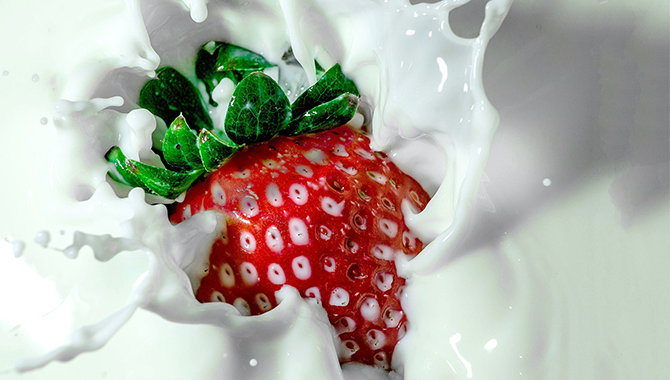“Anti-inflammatory” diets are everywhere – a trend likely fueling nearly 20 million Google search results on the topic. Due to the trend’s increased popularity, our clients are receiving a lot of confusing information when it comes to food and inflammation. That confusion could lead to a client cutting entire food groups from their diet. So let’s tackle some myths about how diet affects inflammation and what science says when it comes to dairy foods.
Myth: All inflammation is bad
Truth: Inflammation is a fundamental function of your immune system
There are two types of inflammation – acute and chronic
- When you get a cut or a scrape, the area around it will often get a little red and swollen. This is your body sending an immune response to destroy any foreign invaders or bacteria that entered your body through that wound – often called the acute inflammatory response. This short-phase immune response only lasts several hours to a few days.
- Chronic (or systemic) inflammation can be asymptomatic and results from a continuously out-of-balance immune system, characterized by elevated pro-inflammatory signaling molecules. Chronic inflammation is an emerging area of study, with research beginning to point to a link between chronic inflammation and various metabolic disorders, such as cardiovascular disease and type 2 diabetes.
Myth: “Anti-inflammatory” diets are important for combating chronic inflammation
Truth: While dietary choices may affect systemic inflammation, there is no scientific consensus on “anti-inflammatory” diets
There is a notion that eating lots of foods high in trans-fat, added sugars and refined carbohydrates may exacerbate the body’s chronic inflammatory response, but a diet of highly processed foods isn’t exactly the MyPlate gold-standard anyway. Instead, our clients should follow MyPlate with an emphasis on fruits and vegetables (rich in antioxidants), whole grains, lean meats, nuts, seeds, legumes and nutrient-rich dairy foods. This can be a great place to start when it comes to improving health and reducing inflammation.
As Greg Miller, Ph.D. says, “Though anti-inflammatory diets are trendy, it’s important to remember that combatting chronic inflammation involves more than individual nutrients or foods. Maintaining health is about having an overall healthful eating pattern and lifestyle and maintaining a healthy weight, among other factors.”
Myth: Dairy foods cause chronic inflammation
Truth: A growing body of research indicates that dairy foods as part of a nutrient-rich diet are not associated with systemic inflammation, and in fact, may reduce inflammation in the body by improving levels of inflammatory biomarkers
A Canadian study investigating dairy food consumption on biomarkers of inflammation in healthy adults with low-grade systemic inflammation found that short-term consumption of low- and high-fat dairy foods as part of a healthy eating plan had no adverse effect on inflammation. Additionally, a newly published clinical study of healthy women showed that eating 1.5 servings of low-fat yogurt per day for nine weeks reduced biomarkers of chronic inflammation.
These studies add to the current body of research indicating that both low- and high-fat dairy foods, as well as fermented dairy foods, either have no effect on inflammation or have been associated with improvements in inflammatory status. And while more research is needed to further confirm these findings, the current research begins to point to the mechanisms behind the association between milk, dairy food consumption and improved metabolic health, including a reduced risk of type 2 diabetes and cardiovascular disease.
Eager to learn more about the benefits of dairy? Here’s more about dairy’s role in a healthy diet.




